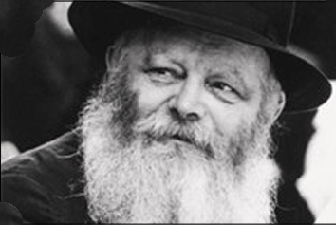(lubavitch.com) Where were you the last time the Jewish people assembled to bless the sun?
Maybe you didn’t even know about it then. The year was 1981. PC’s were still a thing of the future, cell phones unheard of, and the internet age had yet to dawn. Instant mass communication seemed still a fantastic idea, and educating people across geographic, linguistic and cultural distances was slow and painstaking.
To be sure, it wasn’t half as bad as it was nearly a century earlier, when one rabbi fled in fear, and another was arrested as he and his congregants tried to observe the mitzvah and bless the sun in a New York City public park. According to a New York Times report dated April 8, 1897, the rabbi couldn’t speak English, let alone explain to a New York City Irish police officer the peculiar practice he was trying to follow. Cross cultural communications had yet a long way to go.
Things will be very different this time around, on the morning of April 8, when Jewish people worldwide will pay homage to G-d as Creator of the world, by blessing the morning sun. In the weeks leading up to this event, readers enjoyed a deluge of information about this unusual mitzvah, and millions across every divide benefited from opportunities to learn about Jewish traditions and Jewish life.
April 8 2009 is also the eve of Passover, a festival that marks the exodus of the Jewish people from Egypt, a precursor to the Redemption that we have since time immemorial, yearned for. Here too, the media has thoroughly covered the practices and customs of this holiday. Add to that the extensive publicity by every form of modern communication available, informing Jews from Nigeria to New York that they are invited to join one of Chabad’s public seders, and few can claim ignorance of Passover, or of the opportunity to celebrate the holiday and embrace its themes of redemption.
It is a sign of progress, made all the more remarkable because of the way the pervasive interest in and coverage of Jewish life by the Jewish and non-Jewish public—even of obscure traditions like the sun blessing—is taken for granted. Every once in a while, if only to appreciate the distance traveled and the miles to go before we rest, it is good to reflect on how things were before they got to be the way they are.
Many of us yet remember when Jews were uncomfortable about being Jewish in public, inhibited by a self-consciousness that stymied the opportunity for a dynamic, vibrant Jewish experience. Scorned, intimidated, Jews were ashamed of their identity, and Jewish life was decidedly on the wane.
The Lubavitcher Rebbe, Rabbi Menachem M. Schneerson, of righteous memory (1902-1994), whose birth date is marked today, 11 Nissan (Sunday, April 5), was largely responsible for changing this. He saw Jewish education and a living tradition as the empowerment of the Jewish people, and utilized every means possible to thus endow his people.
It is hard to imagine that the Rebbe, now widely acknowledged for his visionary and courageous leadership, now duly recognized for the Jewish revival he led, was once chastised for his boldness, criticized for his daring by those who, understandably perhaps, were afraid to stir the pot, advocating a low Jewish profile.
The Rebbe discerned the existential danger inherent in such squeamishness, and groomed a generation of confident Jewish leaders who would go as far and wide as the Jewish dispersion itself, and cultivate a new Jewish sensibility. The Jewish experience we enjoy today, the Jewish identity we so proudly wear today, is the change he delivered.
This year is also the year of Hakhel, the first year in the 7-year Sabbatical cycle. In Temple times, the Jewish people participated in a re-enactment of the Sinai Revelation, when they convened in Jerusalem to hear the king read inspirational segments of the Torah, and reaffirm the Covenant.
In his eloquent presentation to honor the Hakhel year, UK Chief Rabbi Jonathan Sacks recently explored the three time cycles marked on this Jewish calendar year: Sun-blessing, Hakhel, and Passover, referring respectively to recurring structural themes in Judaism: Creation, Revelation and Redemption. The Lubavitcher Rebbe, he noted, by his extraordinary leadership, spanned all three themes.
Teacher, mystic, leader, he illuminated our lives with the purposefulness of Creation, our existential meanderings with his works of Revelation. Always, he did this with an eye towards Redemption, teaching us, indeed, showing us, that it is within our grasp if only we aim higher, reach farther, and believe more passionately in the possibility of a world repaired, and ultimately redeemed.

Be the first to write a comment.